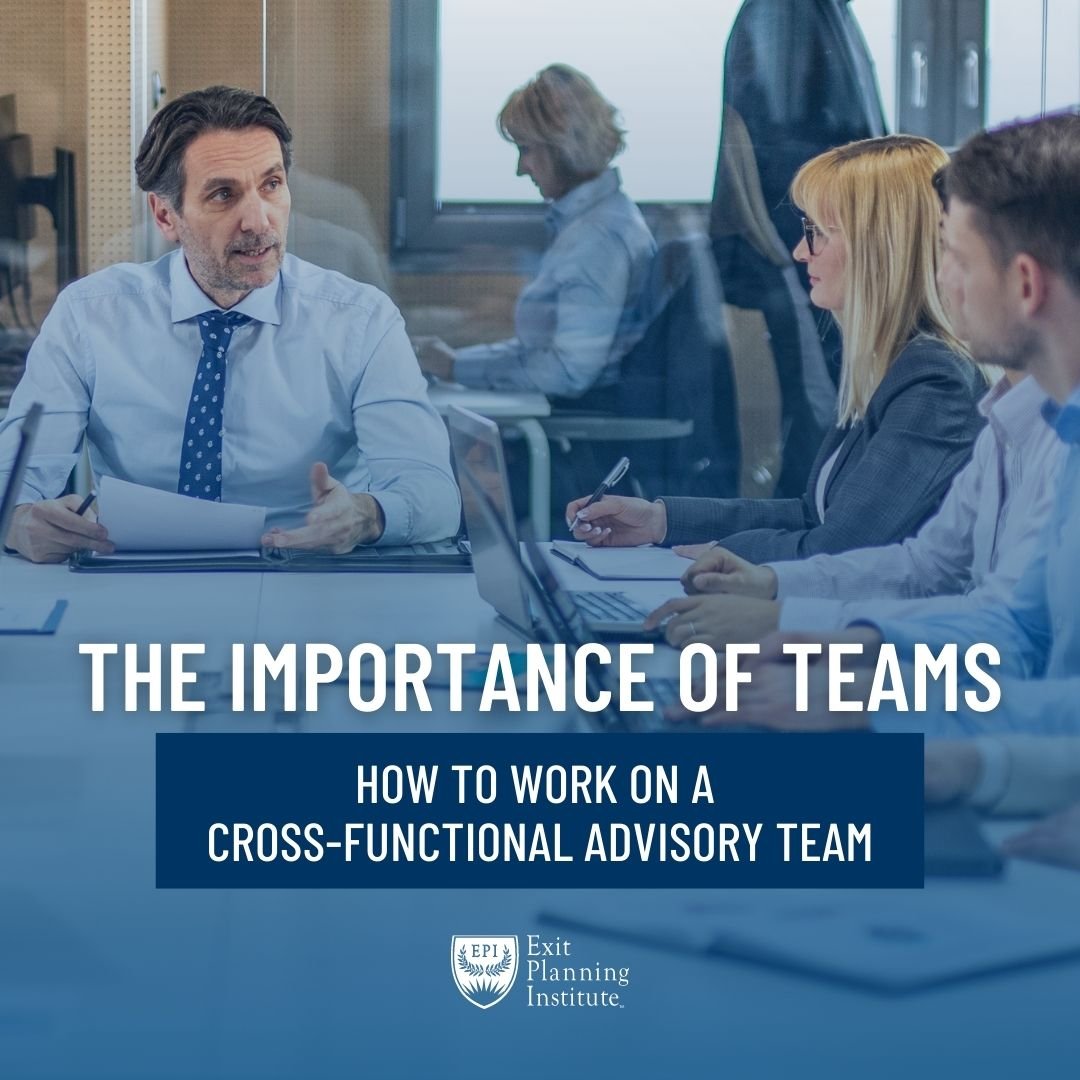
THE EXIT PLANNING BLOG
Keep up-to-date with exit planning, succession planning, industry trends, unique specialty insights, and useful content for professional advisors and business owners.
Share this
How to be a Team Player as a Financial Advisor – The Tokyo 2020 Olympics
by Colleen Kowalski on August 6, 2021

Have you been enjoying the 2020 Tokyo Olympics? The Olympics, much like exit planning, encompass the people from across the globe as they go for the gold. Well, in the exit of your business it is not so much “gold” as it is “money,” but the metaphor stands.
Beach Volleyball has been an official Olympic sport since 1996. The United States men and women Beach Volleyball teams have won 10 medals in the sport since then. This year, four US teams competed for Gold in Tokyo.
Beach volleyball is a partner sport. In order to succeed and win the Gold, you have to be completely in sync with your partner, trust them to have your back, and have strong communication. The same goes for business owners and their business partners.
A business owner works with many advisors, partners, and leadership team members, on the sale of their business. As a financial advisor working on an owner’s sale, you must ensure their business partners and team are working as a cohesive unit and manage any partner disputes that may arise.
Working With A Partner

Of the four US pairs that competed in this year’s Olympics, three pairs have partners who have competed in previous Olympic Games with a different partner. For example, April Ross competed in her third Olympic Games with her third partner, Alix Klineman. She previously won a silver medal in 2012 with Jen Kessy and bronze in 2016 with Beach Volleyball legend, Kerri Walsh-Jennings. This week, April added a gold medal to her collection, as she and Alix defeated Australia in the gold medal match on Thursday, August 5.
Ross embodies the importance of working with your partners to achieve the end goal. Are you working with your partners in your business to build the value needed to succeed in your next act? April Ross highlights the possibility of working with many partners over the course of your career. She has mastered how to successfully transition from one partnership to the next.
Is Their Partner Aware of The Exit Plans?
Strong communication with your business partners is one of the key indicators of whether a business exit will be successful. Without communicating the plans with the owner’s partner, you are setting them up to fail after the owner leaves. Chris Snider, CEO of Exit Planning Institute, writes in his book, Walking To Destiny, “I’d challenge you to be more willing to be transparent with the leaders you rely on to operate your business. You need to address this (exit) immediately so you can start to grow and benefit from the accomplishments of a staff that truly embodies ownership thinking.”
If your owner is planning to exit the company and the partner is choosing to stay with the business, how will their role in the organization change? Are they going to have sole ownership of the business? Will they be expected to work with a new third-party part-owner? Failure to include the owner’s business partner in the succession plan or liquidity event discussions can lead to disagreement and ultimately a partner dispute and unsuccessful exit.
Managing Partner Disputes
Partner disputes and disagreements in Olympic beach volleyball lead to teams losing games and missing out on the opportunity to go for the Gold. In a business, partner disputes lead to an increased chance for an unplanned exit. “Disagreement” is one of the 5 Ds that negatively impact business exits. The 5 Ds are divorce, disagreement, death, disability, and distress. Research shows that the 5 Ds cause 50% of owners to experience an unplanned exit which they were likely not prepared to face.
Minimize the risk of partner disagreements in the exit planning process by creating a separation agreement. This document includes everything that should be executed by each partner and other executive leadership in the company prior to one or both partner’s exit. This partnership agreement will also mitigate financial disputes and liability issues that may arise during a partner’s exit.
Game, Set, Match: How CEPA Helps Financial Advisors Unlock the Gold in an Owner’s Business
The Certified Exit Planning Advisor (CEPA) credential is for professional advisors who want to effectively engage more business owners. Through the exit planning process, when utilizing the Value Acceleration Methodology, owners build more valuable companies, create stronger personal financial plans, and achieve personal goals.
80% of an owner’s wealth is locked within their business. While you may have the opportunity to manage the 20% in liquid assets now, play the long game. Be a strategic partner to your clients and help them achieve the potential they’ve worked so hard to earn.
Financial Advisors put clients on a fast track to liquidity by unlocking the wealth within an owner’s business. This makes you one of the most critical advisors on an owner’s succession planning team. Create a lifelong relationship tapping into both short-term and long-term wins when you bring business exit planning to the conversation.
Learn how Financial Advisors can benefit from CEPA!
Learn More about CEPAWant updates on the exit planning industry and direct access to our latest content?
Share this
- Blog (523)
- CEPA (371)
- exit planning (244)
- CEPA community (182)
- Business Owner (137)
- Exit Planning Summit (86)
- EPI Chapter Network (84)
- Exit Planning Partner Network (76)
- EPI Announcement (49)
- Content (48)
- Value Acceleration Methodology (46)
- Webinars (37)
- Excellence in Exit Planning Awards (32)
- Marketing (30)
- 2024 Exit Planning Summit (28)
- 5 Stages of Value Maturity (26)
- Books (24)
- Exit Planning Teams (22)
- EPI Team (21)
- Leadership (21)
- 2023 Exit Planning Summit (20)
- family business (19)
- women in business (19)
- Intangible Capital (18)
- Exit Options (17)
- Black Friday (16)
- EPI Academy (16)
- CPA (15)
- State of Owner Readiness (14)
- Chapters (13)
- Chris Snider (12)
- National Accounts (12)
- Small business (12)
- Walking to Destiny (12)
- charitable intent (12)
- personal planning (12)
- Financial Advisors (9)
- 5 Ds (8)
- About us (8)
- Podcast (8)
- Insiders Bash (7)
- Scott Snider (7)
- Christmas (6)
- Exit Planning Content Library (6)
- Case Studies (5)
- Owner Roundtables (5)
- Season of Deals (5)
- Value Advisors (5)
- financial planning (5)
- Awards (4)
- Circle of Excellence (4)
- Exit & Succession (4)
- Five Ds (4)
- executive training (4)
- Owners Forum (3)
- forbes (3)
- EPI Thought Leadership Council (2)
- Exit Is Now Podcast (2)
- Peter Christman (2)
- Three Legs of the Stool (2)
- Veteran (2)
- Whitepapers (2)
- author (2)
- Business Owners Forum (1)
- DriveValue (1)
- business consultants (1)






